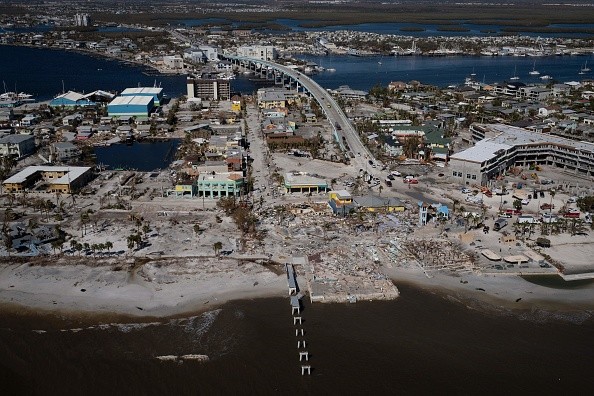A new study raised concerns that the U.S Atlantic Coast becomes a breeding ground for faster-developing and wetter hurricanes. Experts said that environmental conditions and climate change contribute to the problem.
Recently, a powerful Hurricane Ian slammed the state of Florida, leaving deaths and massive damage to property and communities. Hurricane Ian is considered one of the strongest that hit the United States. The catastrophic impact of the Hurricane resulted in widespread flooding and evacuations.
The researchers from the Department of Energy's Pacific Northwest National Laboratory conducted the study. Geophysical Research Letters published the research on October 17, 2022. You can also read the study in ScienceDaily.
Faster-development hurricanes and storms

Climate Scientist Karthik Balaguru explained that warmer sea temperature could intensify hurricane faster. According to the study, Balaguru explained that it is not only in the Atlantic but also in other coastal areas worldwide, noting the profound impact on coastal regions and the country's decision-makers.
Furthermore, the researchers noted that the U.S Atlantic becoming a breeding ground for rapid hurricanes can be attributed to environmental conditions and climate change, including the dependence on fossil fuels.
The study considered the available data from the past four decades showing hurricane activities and conditions. The researchers noted that the hurricanes strengthened in the U.S Atlantic since 1979, which they added could continue based on the reliance on fossil fuel.
Also Read : Sea-Level May Rise to 2 Meters By 2100, Feared Critical to Existing Infrastructures in Asia Pacific Regions
Hurricanes form rapidly, which could evade weather and forecasting prediction tools, noting that conditions such as warmer sea surfaces and atmospheric humidity could intensify the impact of hurricanes.
According to climate scientist Balaguru, Hurricane becomes common on the U.S Atlantic Coast, saying that the warming of oceans is a key factor.
Climate change and fossil fuel dependence
To better understand, it took into account the contribution of climate change. It emphasized that reliance on fossil fuels could worsen the impact of climate change on communities and the warming of oceans.
National Geographic said non-renewable fuels contributed to 80% of the world's energy supply. Non-renewable fuels refer to coal, oil, and natural gas. Fossil fuels produce harmful greenhouse gases making them a primary reason for worsening climate change and global warming.
The United Nations has urged countries to reduce fossil fuel use to avoid disastrous environmental impacts, recommending the transition to renewable energy sources.
According to the study about the role of climate change in hurricane development, researchers explained that it would increase storm development based on the models analyzing the consequence of fossil fuels. The researchers added that there could be a rapid and wetter development of hurricanes or storms through 2100.
In addition, atmospheric scientist Ruby Leung explained that the impact of land-sea warming contrasts could result in hurricane behavior changes in coastal regions, potentially affecting populations worldwide.
You can read the article research here.
For more similar, don't forget to follow Nature World News.
© 2025 NatureWorldNews.com All rights reserved. Do not reproduce without permission.





